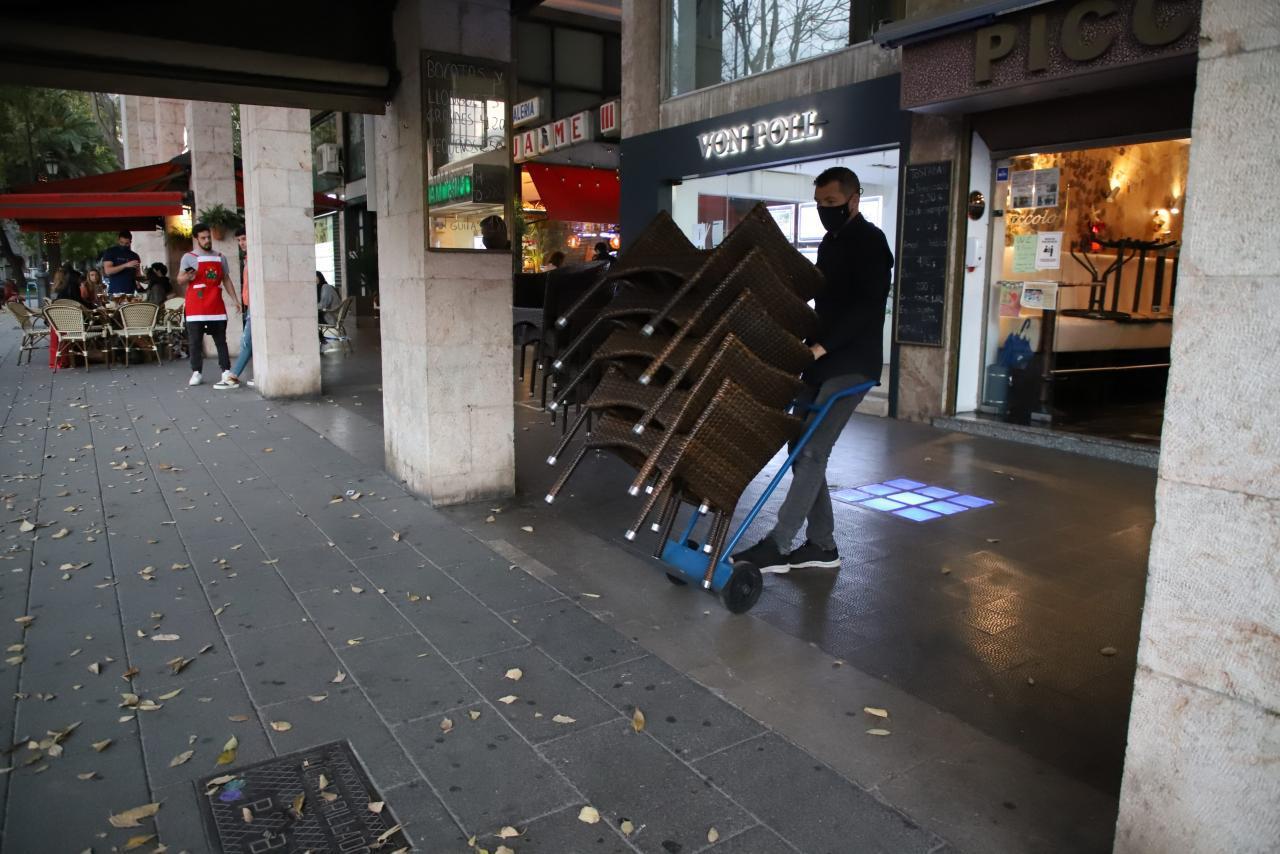"Are you having a laugh?" Presidents of Mallorca's restaurants' associations are far too diplomatic to have uttered this, but associations' members don't feel the same need to restrain themselves. Terraces closed since the middle of January and interiors for somewhat longer, the hospitality sector was hopeful of being more productive than breaking national government delegate bans on protests and being fined for its trouble by reopening on terms as had applied before mid-January. This was only logical, suggested the president of one of the associations.
Not to the government it wasn't. The tables and chairs would have to be piled up at four o'clock in the afternoon. Bar and restaurant employees would have to snatch away half-eaten menus del día from under the unmasked noses of hungry workers. Four o'clock, that was all that hospitality was to get, while the hungry workers would have to issue assurances that a maximum of four of them gathered around a table were from no more than two households.
Only kidding was kind of the response from the government. It had been a negotiating ploy, and as 6pm had been the pre-closure closing time, negotiation logic was to prevail in that the government settled on 5pm. The rest of the social dialogue table (the associations and unions) was said to have been in agreement with 5pm plus fifteen minutes for kicking out stragglers. There again, one of the restaurants' associations has suggested in the past that negotiation agreements are somewhat foisted upon legs of the social dialogue table which aren't those of the government.
Be warned, if infections rise
Slow and cautious. This was the message of the week, as president and ministers warned that, were there to be an increase in infections because of the slight relaxation of restrictive measures, these measures would be reintroduced in record time. Or would they where large stores are concerned?
Iago Negueruela indicated that there hadn't been an increase in infections since they had been allowed to reopen. And all the evidence pointed to him being correct. The data were improving on a daily basis, even if there was the sobering February figure which pointed to more than one hundred confirmed deaths from Covid this month.
Some time in May
The caution and the slowness, ministers were at pains to stress, were on account of concerns about the UK variant and the need to ensure that the tourism season could get going (whenever this might be). There was a report which stated that the variant had been "contained", while the possibility suddenly arose of UK tourist variants being spied on Mallorca's terraces (open rather longer hours) some time in the second half of May. Boris Johnson broke the good news, and tour operator tills were alive with the sound of bookings' cash. Reservations were soaring, and not all of them were for Greece.
The vaccine passport cometh
However, there was still the not unimportant issue of ensuring safe travel. Spain's tourism minister spent most of last week talking about the return of safe corridors, which Spain had "pioneered" (Mallorca in actual fact), while there was also the vaccine passport.
Angela Merkel announced that EU member states had agreed on the need for such a passport. It was now up to the European Commission to draw up the spec. Within three months, the German chancellor indicated, a passport system for the summer will be launched. "A great announcement," said Iago Negueruela, who added - and rightly so - that the passport "cannot be the only way to travel".
Merkel said much the same. The passport system would be a "complementary option", and it couldn't be universally applied anyway, as there is one whole age group which won't have a passport because they won't have had a vaccine or indeed been offered it - children.


No comments
To be able to write a comment, you have to be registered and logged in
Currently there are no comments.